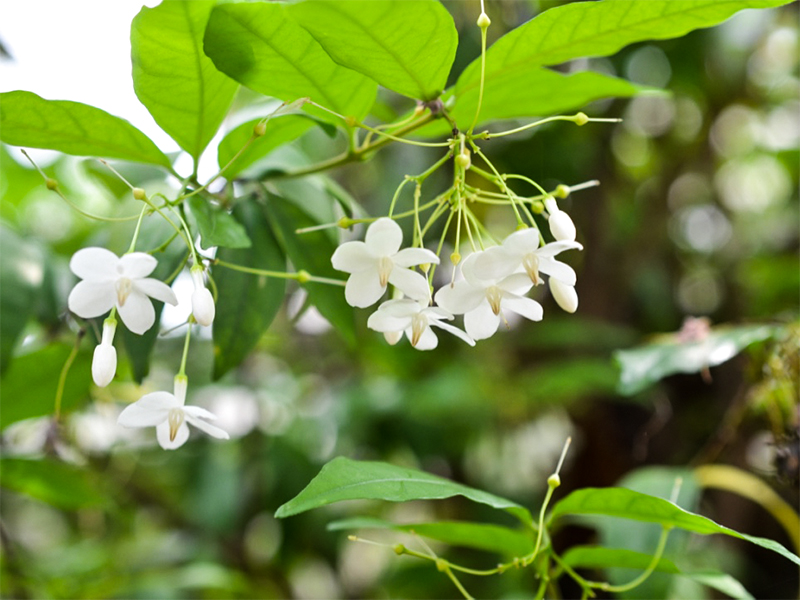Nyctanthese arbor-tristis (Night-Flowering Jasmine, Parijat)
Botanical Information
| Family | Oleaceae |
| Genus | Nyctanthese |
| Species | arbor-tristis |
| Category | Tropicals |
| Type | Shrub (deciduous) |
| Origin | Southern Asia and southeastern Asia. |
| Ethnobotanical Uses Disclaimer | Extracts of the seeds, flowers and leaves possess immunostimulant, hepatoprotective, antileishmanial, antiviral, and anti-fungal activities in vitro. The leaves have been used in Ayurvedic medicine and Homeopathy for sciatica, arthritis, fever, and as a laxative. The flower is the official flower of the state of West Bengal, India, which is known as Parijat and Siuli in both West Bengal and Kanchanaburi Province, Thailand. |
Details
| USDA Hardiness Ref. | |
| Canadian Hardiness Zone | Requires cool season protection under glass. |
| Canada Hardiness Ref. | |
| RHS Hardiness Ref. | |
| Height | Up to 10 m |
Description and Growing Information
| Propagation | By seeds or cuttings. |
| Cultivation | Best grown in partial to full shade with moist to well-drained soil. |
| Bark/Stem Description | Flaky. |
| Leaf Description | Leaves are opposite, simple, 6 - 12 cm long, 2 - 6.5 cm broad, with an entire margin. |
| Flower Description | Fragrant, with five to eight corolla, produced in clusters of 2 - 7 flowers. Blooms only from dusk to dawn. |
| Fruit Description | Bilobed, flat, round capsule containing a single seed. |
| Colour Description | Flowers are white with orange-red centres. Seed capsules are brown. Bark is grey. |
